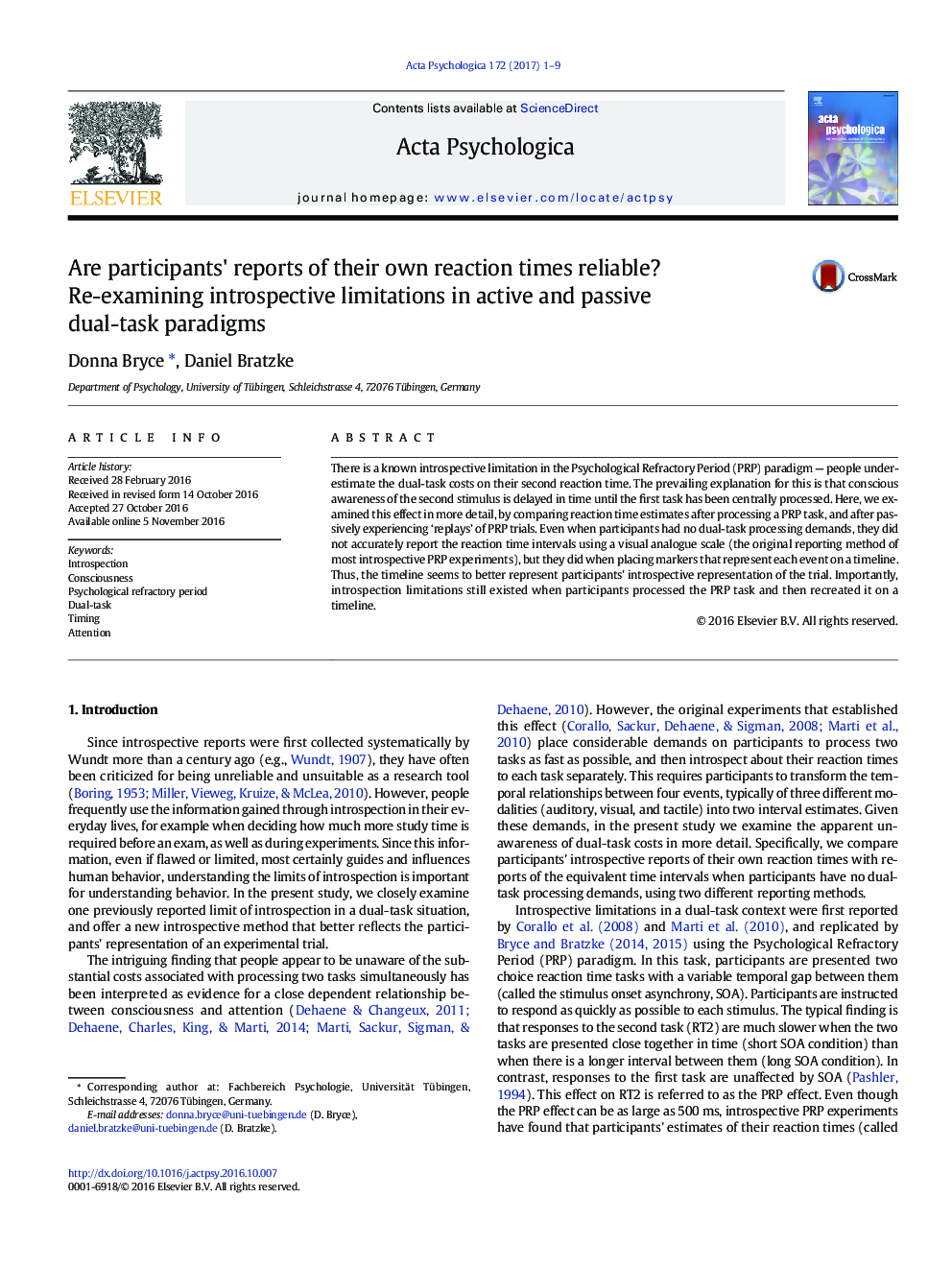| Article ID | Journal | Published Year | Pages | File Type |
|---|---|---|---|---|
| 5040248 | Acta Psychologica | 2017 | 9 Pages |
There is a known introspective limitation in the Psychological Refractory Period (PRP) paradigm - people underestimate the dual-task costs on their second reaction time. The prevailing explanation for this is that conscious awareness of the second stimulus is delayed in time until the first task has been centrally processed. Here, we examined this effect in more detail, by comparing reaction time estimates after processing a PRP task, and after passively experiencing 'replays' of PRP trials. Even when participants had no dual-task processing demands, they did not accurately report the reaction time intervals using a visual analogue scale (the original reporting method of most introspective PRP experiments), but they did when placing markers that represent each event on a timeline. Thus, the timeline seems to better represent participants' introspective representation of the trial. Importantly, introspection limitations still existed when participants processed the PRP task and then recreated it on a timeline.
